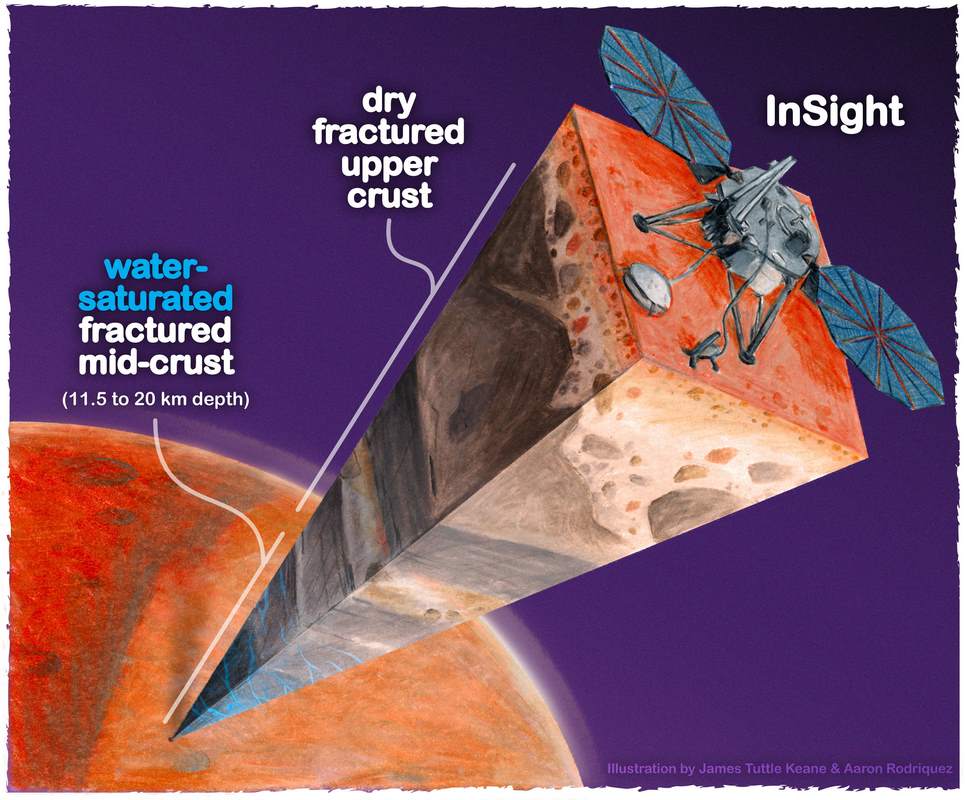Water Found 12 Miles Deep in Mars Could Harbor Life
2 min read
Civilized breakthroughs always give very enticing possibilities out of them, even if these possibilities are not actionable over a short period. According to a new report published by the University of California, researchers might have finally discovered the whereabouts of the water that evaporated from the surface of Mars some 3 billion years ago. It seems that the missing water found its way into fissures in the Martian mantle.
This is a very important discovery because it could help answer one of the more pressing questions related to Mars, a world wet and riverine in ancient times, as to whether it ever supported microbial life—or still does. The problem is that this water is 12 miles below the planet’s surface—five miles below the deepest hole we have ever drilled on Earth.

NASA’s Insight lander picked up a seismic signal that suggests porous, deep rock formations are awash with enough water, that if it could flow to the surface, that it would cover Mars in a one-mile-deep ocean. Crucial is this finding, given science has known for years that the surface oceans once on Mars dried out over three billion years ago.
“Understanding the Martian water cycle is necessary to understand the evolution of the Martian climate, surface, and interior,” explained Dr. Vashan Wright from the Scripps Institution of Oceanography within the University of California, SanDiego.
Wright and his team applied mathematical models of rock physics on Mars in much the same way that mapping underground aquifers and oil fields on Earth is done. Our analysis indicates that the best explanation of this seismologic data from InSight is therefore a deep unit of fractured igneous material soaking in liquid water.
“Confirming the presence of a large liquid water reservoir offers insights into Mars’ past and possible future climate,” added study co-author Professor Michael Manga of UC Berkeley.
The research is in line with the notion that Mars must have had running water, as with river channels, deltas, lake deposits, and water-altered rocks. Still, the wet period ended through the severe loss of atmosphere over 3 billion years ago.
Planetary scientists have long wondered what happened to Mars’ water. The water frozen in the planet’s polar ice caps does not account for all of it. The new findings, therefore, suggest that a lot of the water didn’t escape into space, but rather percolated into the crust.
“So…I don’t see why this subsurface reservoir would not be a habitable environment. On Earth, deep mines and the ocean floor host life,” he said. “While we haven’t located any proof of life on Mars, at least we have identified a place which, in theory, could sustain it.”
Insight formally signed off on its mission after critical power shortages seemed likely to end its operations, but it’s possible the data it collected could go on revealing things for years to come, even if it’s no longer measuring “Marsquakes.”.





